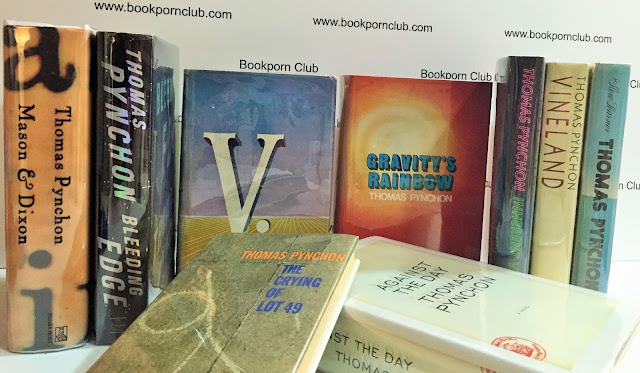Thomas Pynchon and His Alternative World
--- "If they can get you asking the wrong questions, they don't have to worry about answers."
This is the complete first edition collection of Thomas Pynchon's work.
To discover Pynchon is like a serendipitous find of that golden ticket in a chocolate bar, and to read Pynchon is like an adjudicative tour of the mysterious chocolate factory - one either embraces its prolific inventiveness and yearns for more, or rejects its confused absurdity and ventures elsewhere. There is no middle ground: You either love or hate Pynchon's alternative world.
Pynchon is an enigma. He is a postmodernist (whatever that means) author famed for cultish novels but remains so reclusive that his followers know not how he looks or where he lives today. His novels are often massive, with a couple going to over a thousand pages, and dense with allusions and references to disciplines as diverse as psychology, philosophy, history, music, the sciences, and Nabokov's work, who, some experts suggest, had profound influence on Pynchon (apparently Pynchon took one of Nabokov's graduate courses at Cornell). Yet, Pynchon's work is also a Saturnalia of eccentricities, starting from the elusive and as yet unknown "V." entity, to suggestive names like Oedipa Maas and Pierce Inverarity and a mysterious set of stamps auctioned as Lot 49, to a mysterious rocket installation with serial number "00000". It would be impossible to take these Willy Wonkan peculiarities seriously without Pynchon's erudition and profundity, and a taste for hysteria and irreverent humor.
Harold Bloom considers Pynchon one of the finest American writer today, and Don DeLillo remarked that Pynchon "has set the standard" for the literary peers of his generation.



Comments
Post a Comment